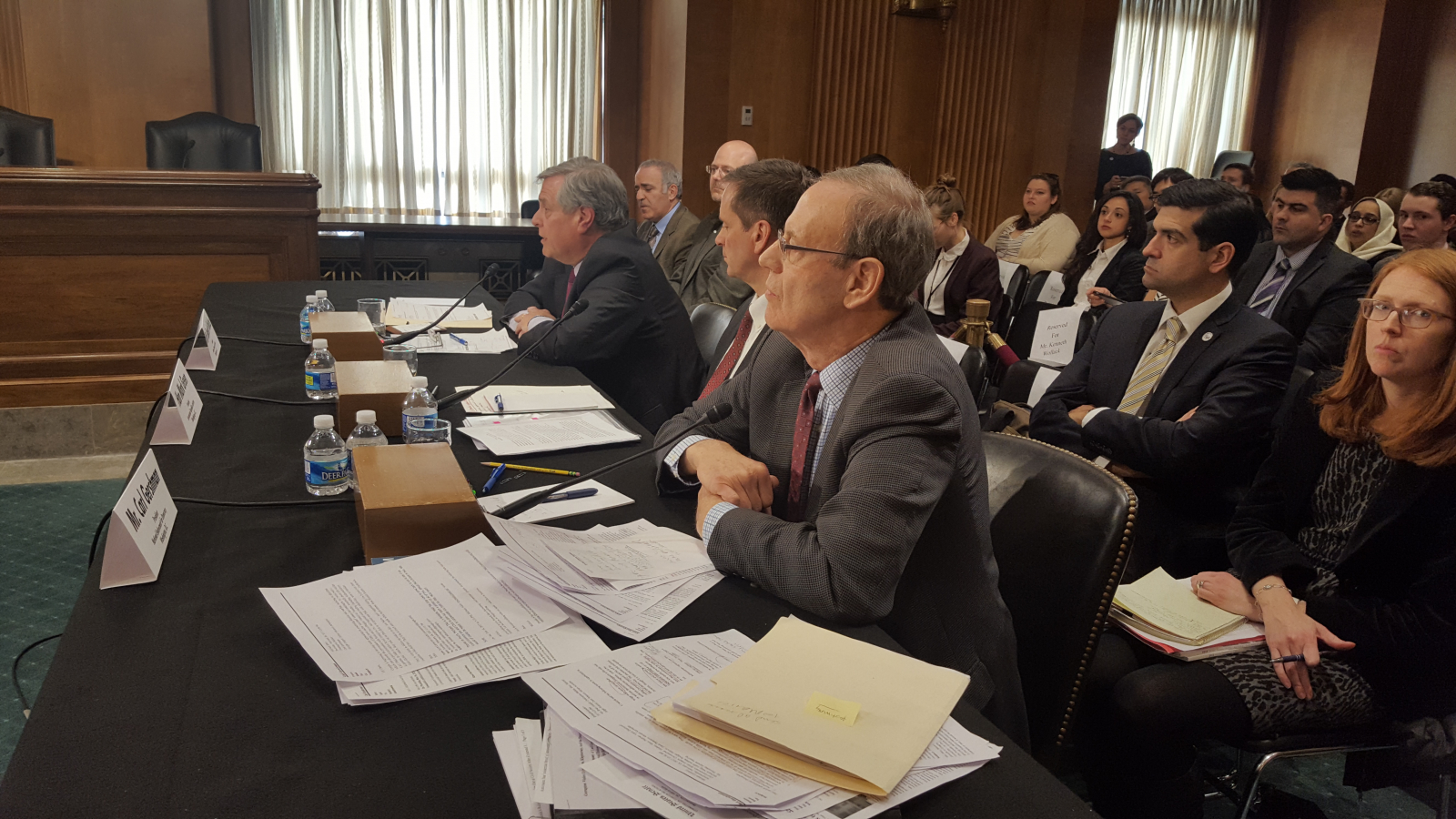Being True to U.S. Values Means Supporting Stability and Freedom through Democracy Assistance

Expert witnesses testify in front of the Senate Foreign Relations Committee about the importance of international democracy assistance. From left to right: NDI President Kenneth Wollack, IRI President Mark Green, and NED President Carl Gershman.


